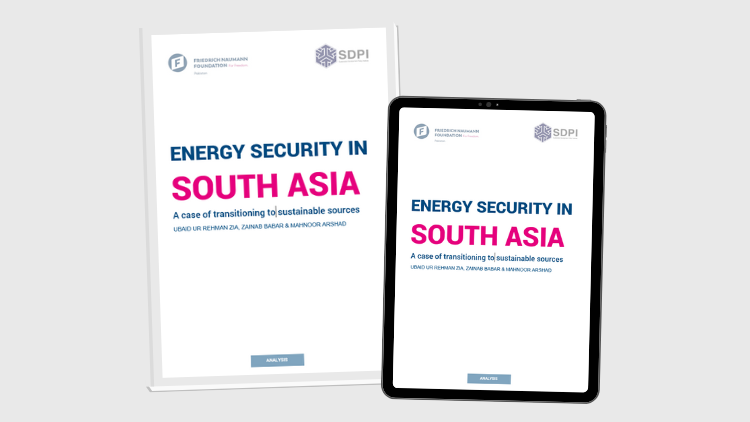Publication
Energy Security in South Asia

Energy Security in South Asia SDPI FNF
Energy insecurity is becoming a pressing concern in South Asia. The constantly increasing energy demand, limited non-renewable resources, and a very high reliance on imported fossil fuels (around two-third of total energy demand) have exposed the region to price volatility and economic risks. Resultantly, as of 2021, around 8% of the population does not have access to reliable grid-based electricity, and 47% does not have access to clean cooking fuels and technologies. The recent crisis coupled with already existing inefficiencies of the system has led to a vicious cycle of a three-fold challenge i.e., energy security, energy equity, and environmental sustainability.
Regional collaboration among South Asian countries is seen as a key strategy to enhance energy security by providing stable energy supplies, reducing costs, and ensuring access to diverse energy sources. However, the regional trade share of South Asia stands at 5.6%, which is the lowest in the world. Most of the energy trade is being carried out under bilateral inter-governmental contracts and not under an enabling framework for cross-border energy trade. Based on an extensive review of the existing frameworks and their eventual impacts, this study indicates that the key challenges hindering growth includes political differences, unrest, and lack of credibility, absence of a legal protective cover and incentive mechanisms, efforts to meet demands instead of creating a competitive common energy market, country laws and regulations around cross border energy trade, difference in taxation methodologies, absence of standard contracts leading to challenges in harmonization of processes, and limited cross-border infrastructure between some member countries to integrate energy cooperation.
In the backdrop of challenges highlighted above, this report demonstrates the viability of regional cooperation and transition towards renewable energy as the key to addressing energy security concerns in South Asia. It analyses the energy sector landscape of South Asia, development plans for regional cooperation, policy focus towards renewable energy upscale, and devises a roadmap for a more inclusive and green future of the energy sector in South Asia.
The policy paper “Energy Security in South Asia and Transition to Sustainable Sources” has been produced by Sustainable Development Policy Institute (SPDI) in collaboration with Friedrich Naumann Foundation (FNF), Pakistan. The lead authors of this study are Ubaid ur Rehman Zia, Zainab Babar, and Mahnoor Arshad.